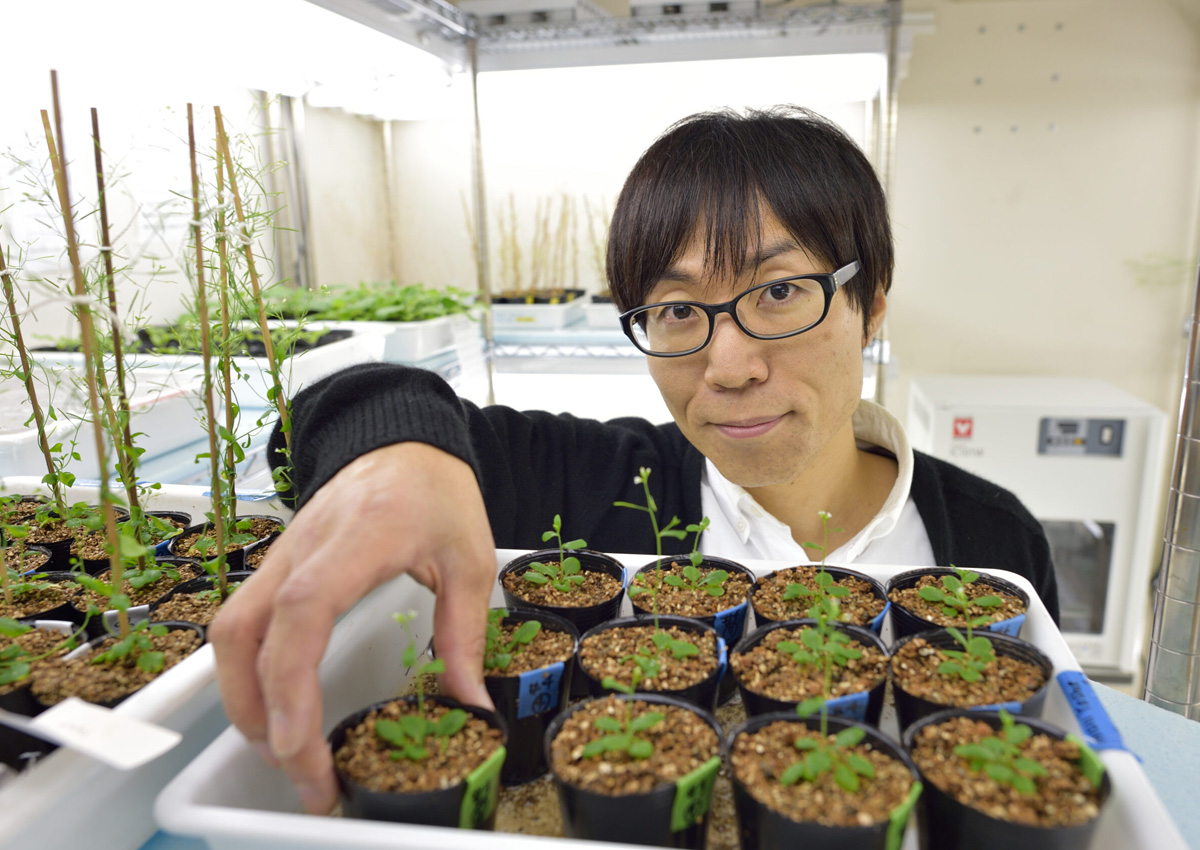
International Research Team Identifies Pathway for Accelerated Plant Flowering in Low-Nitrogen Soils
June 2, 2021| |
A team of scientists from Japan, Europe, and the USA has identified a pathway leading to accelerated flowering of plants in low-nitrogen soils. The scientists, led by Associate Professor Takeo Sato of Hokkaido University's Graduate School of Life Science, have revealed the molecular mechanism responsible for the acceleration of flowering in Arabidopsis under low nitrogen conditions.
The research team identified a set of proteins involved in flowering that became active as a result of changes in nitrogen level. One of these was the gene regulation factor FLOWERING BHLH 4 (FBH4). Through experiments using FBH4 deficient plants, this protein was found to be responsible for accelerated flowering under low-nitrogen conditions.
Further research suggests that FBH4 is extensively phosphorylated by another protein called SnRK1. Low-nitrogen conditions suppress SnRK1 activity, which in turn results in the dephosphorylation of FBH4. The dephosphorylated FBH4 moves to the nucleus to activate genes responsible for flowering. Dephosphorylated FBH4 is also responsible for controlling the expression of other genes vital for plant survival under low nitrogen conditions, particularly those related to nitrogen recycling and remobilization.
For more details, read the research press release from Hokkaido University.
| |
You might also like:
- Chinese Scientists Discover Rice Gene for Adaptation to Low Soil Nitrogen
- Research Reveals New Approach to Improve Nitrogen Use, Enhance Yield, and Promote Flowering in Rice
- Study Reveals How Plants Get Their Nitrogen Fix
Biotech Updates is a weekly newsletter of ISAAA, a not-for-profit organization. It is distributed for free to over 22,000 subscribers worldwide to inform them about the key developments in biosciences, especially in biotechnology. Your support will help us in our mission to feed the world with knowledge. You can help by donating as little as $10.
-
See more articles:
-
News from Around the World
- International Research Team Identifies Pathway for Accelerated Plant Flowering in Low-Nitrogen Soils
- ISAAA Webinar: What is Gene Drive?
- Over 2,000 Nigerian Farmers Reaping the Benefits of Biotechnology
- Canada Approves HB4 Drought Tolerant Soybeans
- Study Finds Key Protein in Plant's Response to Nitrogen Deficiency
- GM Maize Adoption Increases by 31% Every Year in the Philippines, Benefiting More Resource-poor Farmers
- Scientists Call for International Investment to Tackle Major Wheat Losses
- Scientists Provides New Tool in Breeding More Climate-Resilient Cole Crops
-
Research Highlights
- Researchers from China, Czech Republic, and USA Report Reference Genome for Maize B Chromosome
- GE Potato Plant Responds to Stress by Glowing
-
Plant
- Orange Poinsettias Developed Using CRISPR-Cas9
- International Trade in Crops with New Breeding Technologies: The Australian Perspective
-
Read the latest: - Biotech Updates (February 18, 2026)
- Gene Editing Supplement (January 28, 2026)
- Gene Drive Supplement (February 22, 2023)
-
Subscribe to BU: - Share
- Tweet

